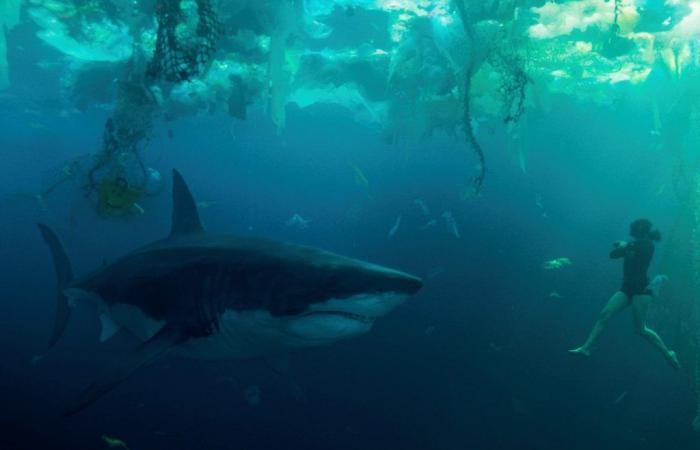It remains the most viewed film in . There is nothing to give it to him with. With a spirit comparable to that of Spielberg’s classic, the French production entered the international audiovisual conversation a few days ago based on good action, special effects and a delirious plot. And there it is, number 1 in Latin America for days.
The conflict breaks out with the emergence of a mako shark in the Seine River, in the center of Paris, which comes from the Atlantic Ocean. Just at that moment a triathlon competition is taking place in the area and the lives of dozens of people are put in danger.
One of the debates that arise from its plot has to do with the scientific precision of what happens. A priori one may think that it is completely crazy that something like this happens in the Seine, but, it really is?
How likely is it for a shark to appear in the Seine?
It is very unlikely, but not 100% impossible. And from here, be careful: there may be spoilers.
The facts in question are two: the possibility of a shark inhabiting a river and the one that a shark can self-reproduce. It goes without saying that Paris is unlikely to suffer a flood of the magnitude that is presented in the film.
Regarding the first aspect, Ali Hooddirector of conservation at the shark study, management and conservation advocacy charity the Shark Trust, says that while it is not impossible, Yes, it is very unlikely that a shark can inhabit the Seine without dying from dehydration.
Always keeping in mind that the Seine flows into the English Channel and that the English Channel is linked to the Atlantic.
Poster for In the Depths of the Seine. Photo: Netflix
There are three recognized species of freshwater shark: the Ganges shark, the New Guinea river shark and the speartooth shark.
“Man-made obstacles aside, few sharks evolved to tolerate a wide range of salinities, being unable to adapt to the physiological demands of regulating the water content of their bodies at different salinities; in summary, fresh water would dehydrate them“Hood explained.
In any case, most saltwater sharks that stray too far inland tend not to be in a position to go kill, explains the specialist.
Bérénice Bejo in In the Depths of the Seine. Photo: Netflix
“The diversity of sharks and rays in the English Channel is rich, but none of them show a predilection for fresh water or the ability to open a lock!” adds Hood.
Regarding the second question, that of self-reproduction, a source consulted by Clarín stated that “very few cases of parthenogenesis have been recorded in some species of sharks,” although “It is very rare, especially in nature, to see this phenomenon but there are cases. That is to say, they do not need males.”






